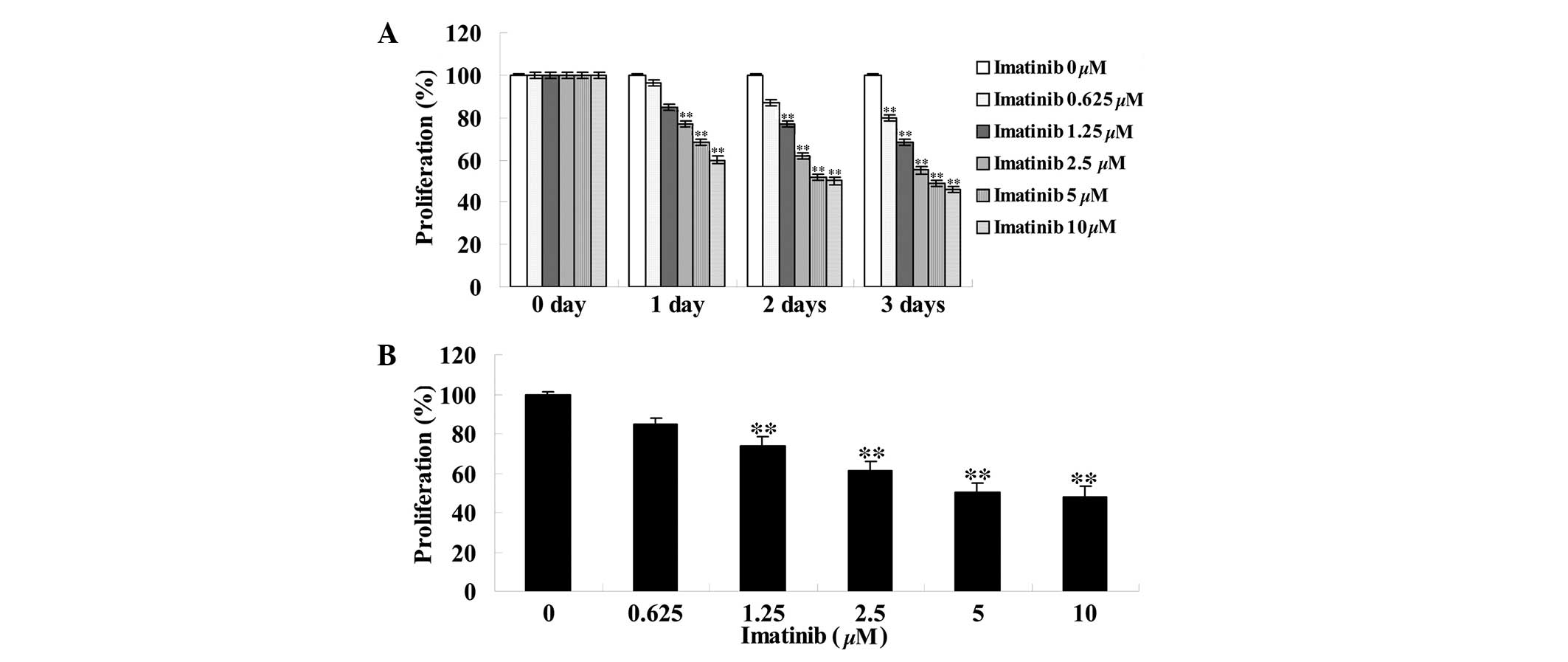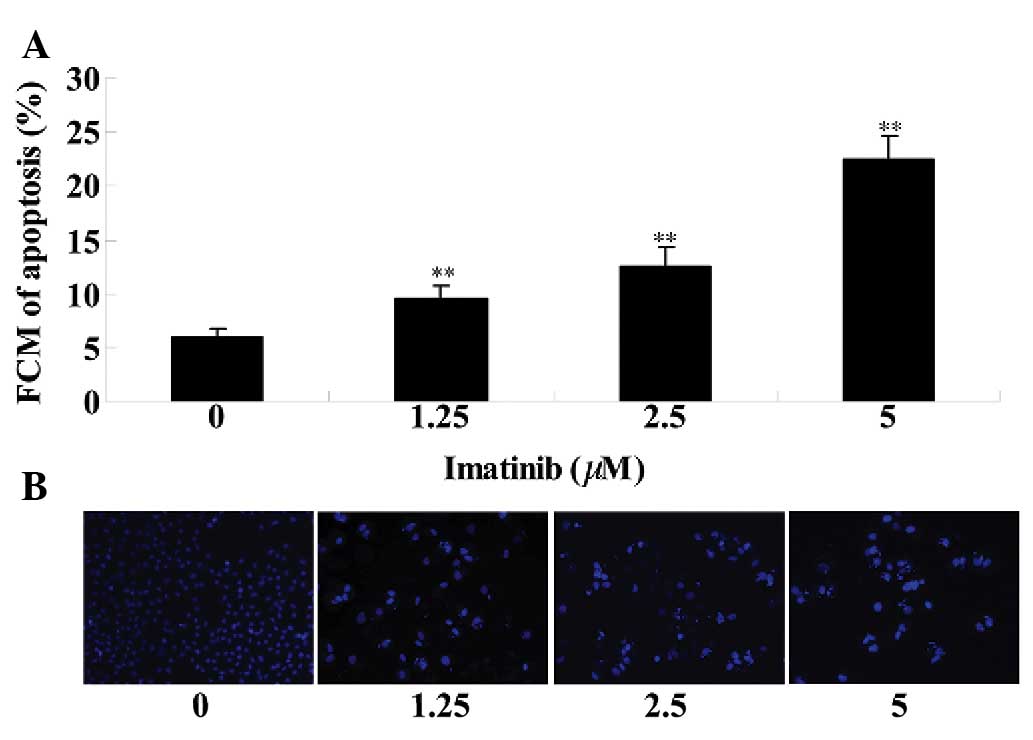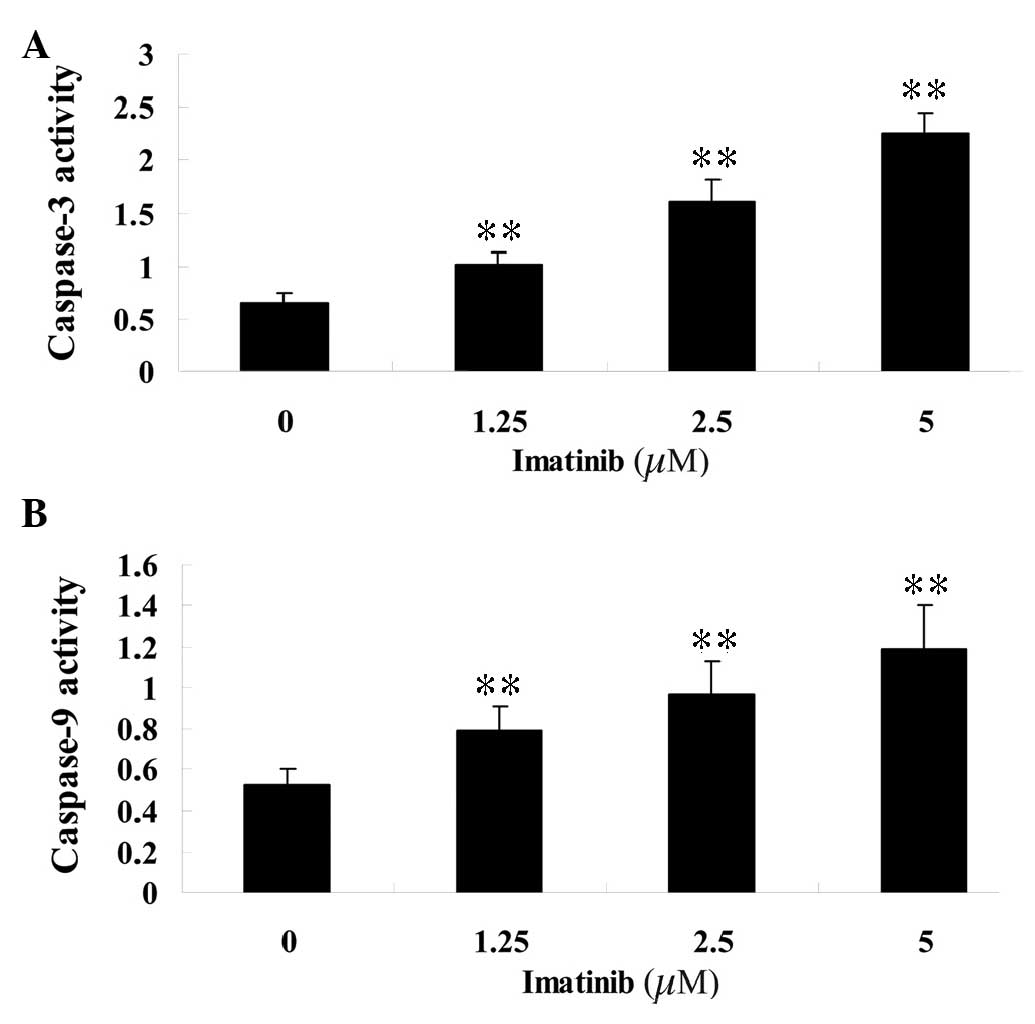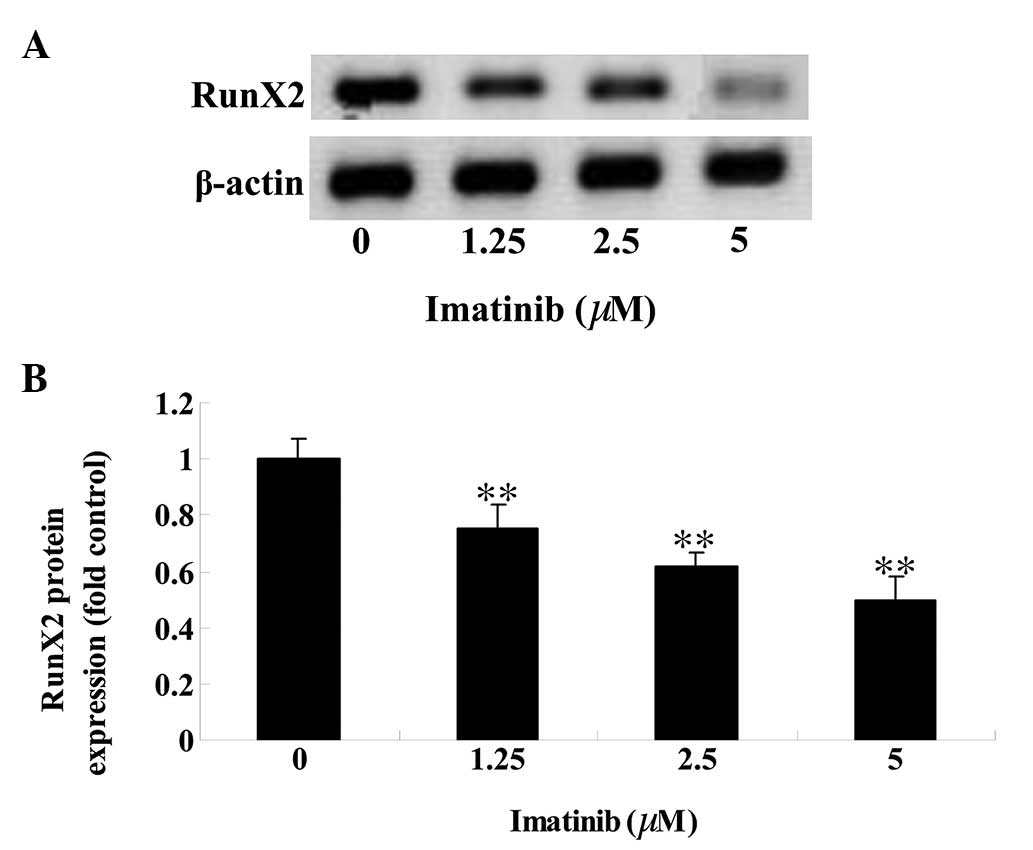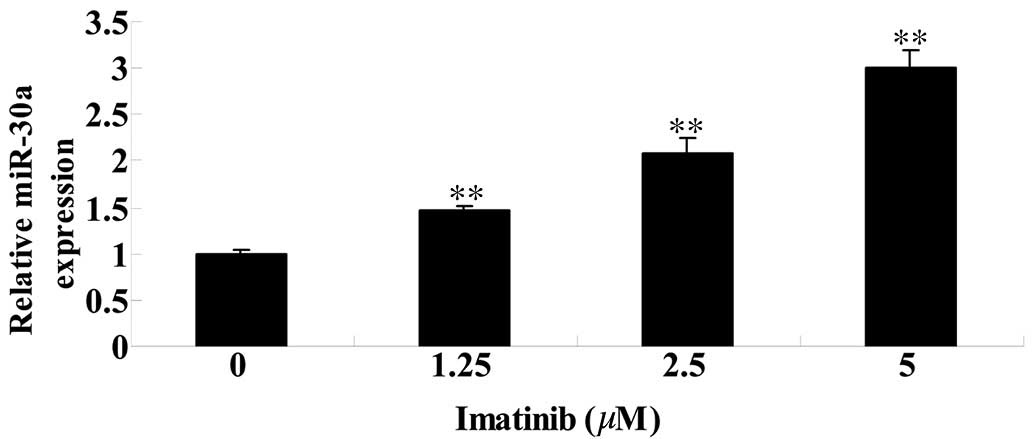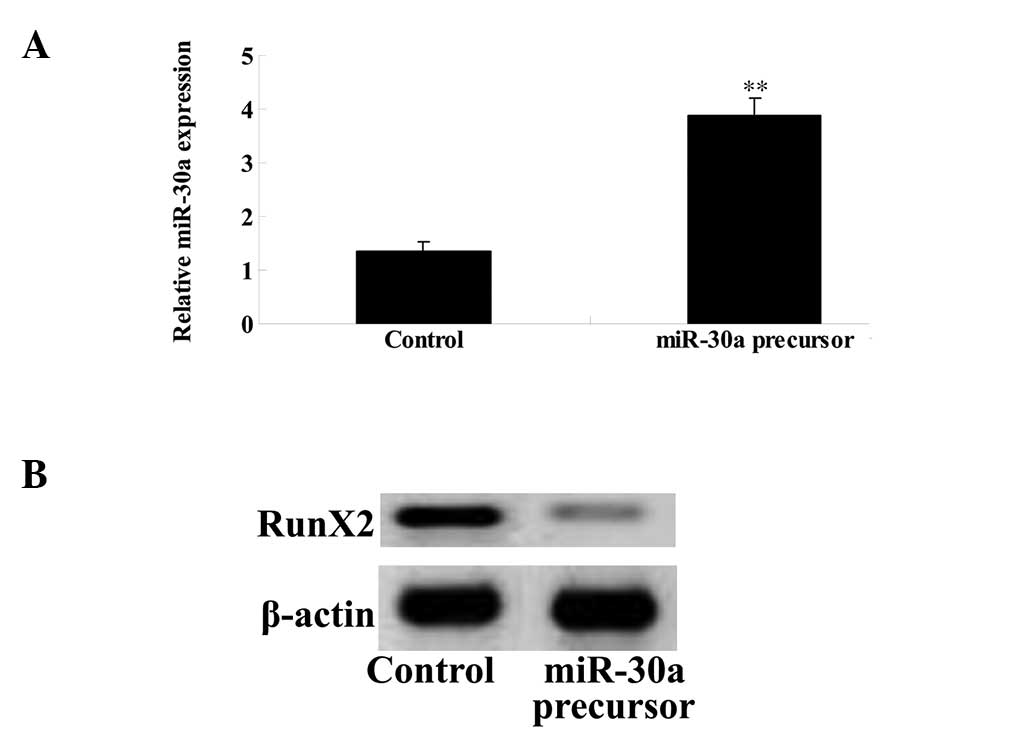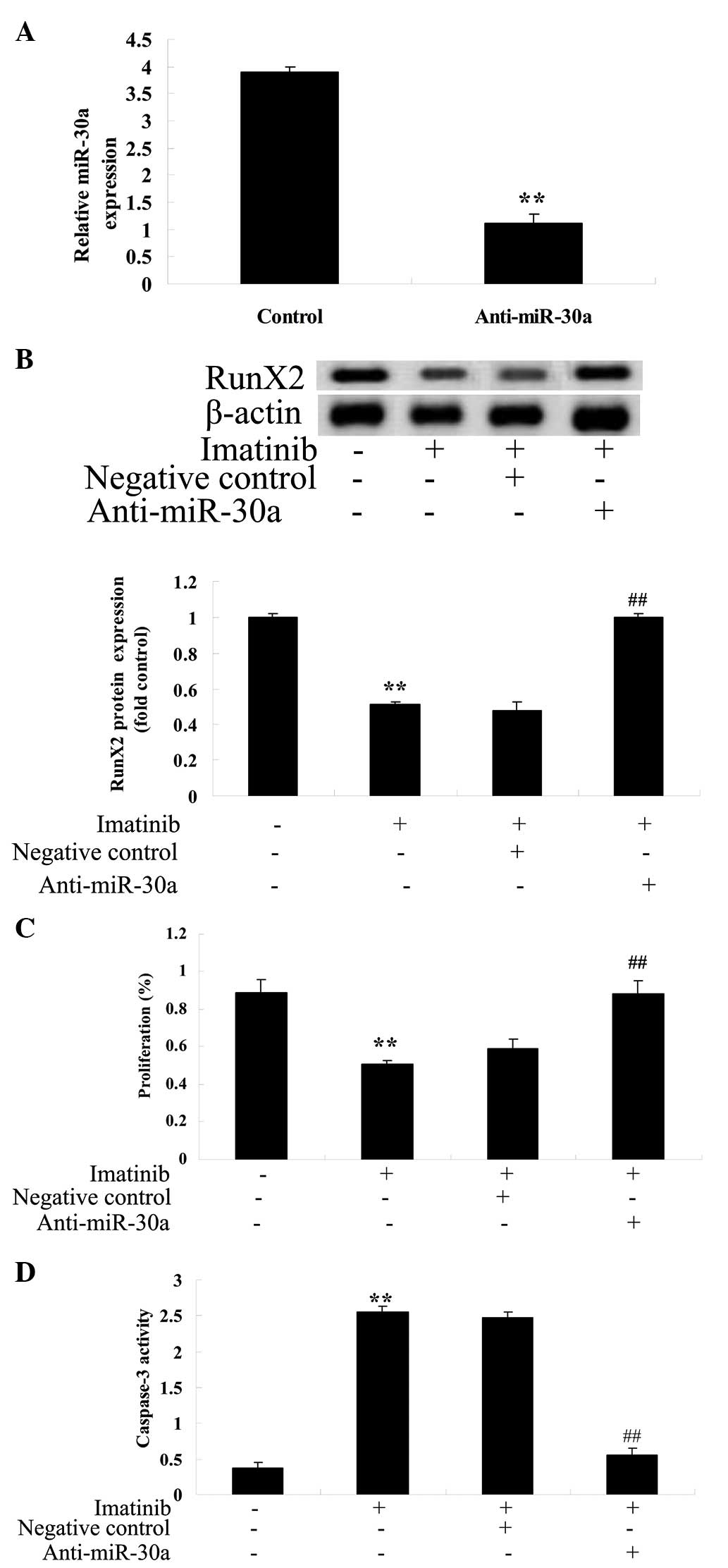|
1
|
Wang T, Hou Y, Ding X, Song B, Wang F and
Hou W: Overexpression, purification, molecular characterization and
pharmacological evaluation for anticancer activity of ribosomal
protein S23 from the giant panda (Ailuropoda melanoleuca). Mol Med
Rep. 7:1875–1882. 2013.PubMed/NCBI
|
|
2
|
Yang T, Zheng XF, Li M, Lin X and Yin QS:
Stimulation of osteogenic differentiation in stromal cells of giant
cell tumour of bone by zoledronic acid. Asian Pac J Cancer Prev.
14:5379–5383. 2013. View Article : Google Scholar : PubMed/NCBI
|
|
3
|
Jiang N, Qin CH, Tan CX, Wen SF, Ma YF,
Dong F, Diao XC, Zhang P and Yu B: A retrospective analysis of 140
patients with giant cell tumor in the extremity: a multicenter
study based on four hospitals in South China. Cancer Epidemiol.
37:294–299. 2013. View Article : Google Scholar : PubMed/NCBI
|
|
4
|
Komori T: Mechanism of transcriptional
regulation by Runx2 in osteoblasts. Clin Calcium. 16:801–807.
2006.In Japanese. PubMed/NCBI
|
|
5
|
Phimphilai M, Zhao Z, Boules H, Roca H and
Franceschi RT: BMP signaling is required for RUNX2-dependent
induction of the osteoblast phenotype. J Bone Miner Res.
21:637–646. 2006. View Article : Google Scholar : PubMed/NCBI
|
|
6
|
Mak IW, Cowan RW, Popovic S, Colterjohn N,
Singh G and Ghert M: Upregulation of MMP-13 via Runx2 in the
stromal cell of Giant Cell Tumor of bone. Bone. 45:377–386. 2009.
View Article : Google Scholar : PubMed/NCBI
|
|
7
|
Singh S, Singh M, Mak IW, Turcotte R and
Ghert M: Investigation of FGFR2-IIIC signaling via FGF-2 ligand for
advancing GCT stromal cell differentiation. PLoS One. 7:e467692012.
View Article : Google Scholar : PubMed/NCBI
|
|
8
|
Kumarswamy R, Mudduluru G, Ceppi P,
Muppala S, Kozlowski M, Niklinski J, Papotti M and Allgayer H:
MicroRNA-30a inhibits epithelial-to-mesenchymal transition by
targeting Snai1 and is downregulated in non-small cell lung cancer.
Int J Cancer. 130:2044–2053. 2012. View Article : Google Scholar
|
|
9
|
Liu J, Shi W, Wu C, Ju J and Jiang J:
miR-181b as a key regulator of the oncogenic process and its
clinical implications in cancer (Review). Biomed Rep. 2:7–11.
2014.PubMed/NCBI
|
|
10
|
Zou Z, Wu L, Ding H, Wang Y, Zhang Y, Chen
X, Chen X, Zhang CY, Zhang Q and Zen K: MicroRNA-30a sensitizes
tumor cells to cis-platinum via suppressing beclin 1-mediated
autophagy. J Biol Chem. 287:4148–4156. 2012. View Article : Google Scholar :
|
|
11
|
Huang Q, Jiang Z, Meng T, Yin H, Wang J,
Wan W, Cheng M, Yan W, Liu T, Song D, et al: MiR-30a inhibits
osteolysis by targeting RunX2 in giant cell tumor of bone. Biochem
Biophys Res Commun. 453:160–165. 2014. View Article : Google Scholar : PubMed/NCBI
|
|
12
|
Roth DB, Akbari S and Rothstein A: Macular
ischemia associated with imatinib mesylate therapy for chronic
myeloid leukemia. Retin Cases Brief Rep. 3:161–164. 2009.
View Article : Google Scholar : PubMed/NCBI
|
|
13
|
Weisberg E, Deng X, Choi HG, Barrett R,
Adamia S, Ray A, Moreno D, Kung AL, Gray N and Griffin JD:
Beneficial effects of combining a type II ATP competitive inhibitor
with an allosteric competitive inhibitor of BCR-ABL for the
treatment of imatinib-sensitive and imatinib-resistant CML.
Leukemia. 24:1375–1378. 2010. View Article : Google Scholar : PubMed/NCBI
|
|
14
|
Dohse M, Scharenberg C, Shukla S, et al:
Comparison of ATP-binding cassette transporter interactions with
the tyrosine kinase inhibitors imatinib, nilotinib, and dasatinib.
Drug Metab Dispos. 38:1371–1380. 2010. View Article : Google Scholar : PubMed/NCBI
|
|
15
|
Sarszegi Z1, Bognar E, Gaszner B, Kónyi A,
Gallyas F Jr, Sumegi B and Berente Z: BGP-15, a PARP-inhibitor,
prevents imatinib-induced cardiotoxicity by activating Akt and
suppressing JNK and p38 MAP kinases. Mol Cell Biochem. 365:129–137.
2012. View Article : Google Scholar : PubMed/NCBI
|
|
16
|
Grunwald L, Mehta S, Hogarty MD and Liu
GT: Chronic myelogenous leukemia and retinopathy treated with
imatinib. Retin Cases Brief Rep. 5:366–368. 2011. View Article : Google Scholar : PubMed/NCBI
|
|
17
|
Park YS, Lee JK, Baek SW and Park CK: The
rare case of giant cell tumor occuring in the axial skeleton after
15 years of follow-up: Case report. Oncol Lett. 2:1323–1326.
2011.
|
|
18
|
Fu S, Bai R, Zhao Z, Zhang Z, Zhang G,
Wang Y, Wang Y, Jiang D and Zhu D: Overexpression of
hypoxia-inducible factor-1α and vascular endothelial growth factor
in sacral giant cell tumors and the correlation with tumor
microvessel density. Exp Ther Med. 8:1453–1458. 2014.PubMed/NCBI
|
|
19
|
Maass N, Schem C, Bauerschlag DO, Tiemann
K, Schaefer FW, Hanson S, Muth M, Baier M, Weigel MT, Wenners AS,
et al: Final safety and efficacy analysis of a phase I/II trial
with imatinib and vinorelbine for patients with metastatic breast
cancer. Oncology. 87:300–310. 2014. View Article : Google Scholar : PubMed/NCBI
|
|
20
|
de Melo Campos P, Machado-Neto JA,
Scopim-Ribeiro R, Visconte V, Tabarroki A, Duarte AS, Barra FF,
Vassalo J, Rogers HJ, Lorand-Metze I, et al: Familial systemic
mastocytosis with germline KIT K509I mutation is sensitive to
treatment with imatinib, dasatinib and PKC412. Leuk Res.
38:1245–1251. 2014. View Article : Google Scholar : PubMed/NCBI
|
|
21
|
Halperin DM, Phan AT, Hoff AO, Aaron M,
Yao JC and Hoff PM: A phase I study of imatinib, dacarbazine, and
capecitabine in advanced endocrine cancers. BMC Cancer. 14:5612014.
View Article : Google Scholar : PubMed/NCBI
|
|
22
|
Zhang YF, Xu GB, Gan YC, Xu XH and Xu RZ:
Inhibitory effect of 4-chlorobenzoyl berbamine on
imatinib-resistant K562 cells in vitro and in vivo. Nan Fang Yi Ke
Da Xue Xue Bao. 31:1997–2001. 2011.In Chinese. PubMed/NCBI
|
|
23
|
Gamas P, Marchetti S, Puissant A, Grosso
S, Jacquel A, Colosetti P, Pasquet JM, Mahon FX, Cassuto JP and
Auberger P: Inhibition of imatinib-mediated apoptosis by the
caspase-cleaved form of the tyrosine kinase Lyn in chronic
myelogenous leukemia cells. Leukemia. 23:1500–1506. 2009.
View Article : Google Scholar : PubMed/NCBI
|
|
24
|
Tatematsu T, Sasaki H, Shimizu S, Okuda K,
Shitara M, Hikosaka Y, Moriyama S, Yano M, Brown J and Fujii Y:
Investigation of neurotrophic tyrosine kinase receptor 1 fusions
and neurotrophic tyrosine kinase receptor family expression in
non-small-cell lung cancer and sensitivity to AZD7451. Mol Clin
Oncol. 2:725–730. 2014.PubMed/NCBI
|
|
25
|
Xiao ZS, Hjelmeland AB and Quarles LD:
Selective deficiency of the bone-related Runx2-II unexpectedly
preserves osteoblast-mediated skeletogenesis. J Biol Chem.
279:20307–20313. 2004. View Article : Google Scholar : PubMed/NCBI
|
|
26
|
Hu N, Feng C, Jiang Y, Miao Q and Liu H:
Regulative effect of mir-205 on osteogenic differentiation of bone
mesenchymal stem cells (BMSCs): Possible role of SATB2/Runx2 and
ERK/MAPK pathway. Int J Mol Sci. 16:10491–10506. 2015. View Article : Google Scholar : PubMed/NCBI
|
|
27
|
Huang RL, Yuan Y, Tu J, Zou GM and Li Q:
Opposing TNF-α/IL-1β- and BMP-2-activated MAPK signaling pathways
converge on Runx2 to regulate BMP-2-induced osteoblastic
differentiation. Cell Death Dis. 5:e11872014. View Article : Google Scholar
|
|
28
|
Glynn ER, Londono AS, Zinn SA, Hoagland TA
and Govoni KE: Culture conditions for equine bone marrow
mesenchymal stem cells and expression of key transcription factors
during their differentiation into osteoblasts. J Anim Sci
Biotechnol. 4:402013. View Article : Google Scholar : PubMed/NCBI
|
|
29
|
Jönsson S, Hjorth-Hansen H, Olsson B,
Wadenvik H, Sundan A and Standal T: Imatinib inhibits proliferation
of human mesenchymal stem cells and promotes early but not late
osteoblast differentiation in vitro. J Bone Miner Metab.
30:119–123. 2012. View Article : Google Scholar
|
|
30
|
Tibullo D, Giallongo C, La Cava P, Beretta
S, Stagno F, Chiarenza A, Conticello C, Palumbo GA and Di Raimondo
F: Effects of imatinib mesylate in osteoblastogenesis. Exp Hematol.
37:461–468. 2009. View Article : Google Scholar : PubMed/NCBI
|
|
31
|
Heneghan HM, Miller N, Lowery AJ, Sweeney
KJ, Newell J and Kerin MJ: Circulating microRNAs as novel minimally
invasive biomarkers for breast cancer. Ann Surg. 251:499–505. 2010.
View Article : Google Scholar : PubMed/NCBI
|
|
32
|
Corney DC, Hwang CI, Matoso A, Vogt M,
Flesken-Nikitin A, Godwin AK, Kamat AA, Sood AK, Ellenson LH,
Hermeking H and Nikitin AY: Frequent downregulation of miR-34
family in human ovarian cancers. Clin Cancer Res. 16:1119–1128.
2010. View Article : Google Scholar : PubMed/NCBI
|
|
33
|
Tsukamoto Y, Nakada C, Noguchi T, Tanigawa
M, Nguyen LT, Uchida T, Hijiya N, Matsuura K, Fujioka T, Seto M and
Moriyama M: MicroRNA-375 is downregulated in gastric carcinomas and
regulates cell survival by targeting PDK1 and 14-3-3zeta. Cancer
Res. 70:2339–2349. 2010. View Article : Google Scholar : PubMed/NCBI
|
|
34
|
Chacon-Cabrera A, Fermoselle C, Salmela I,
Yelamos J and Barreiro E: MicroRNA expression and protein
acetylation pattern in respiratory and limb muscles of
Parp-1−/− and Parp-2−/− mice with lung cancer
cachexia. Biochim Biophys Acta. 1850:2530–2543. 2015. View Article : Google Scholar : PubMed/NCBI
|
|
35
|
Kodahl AR, Lyng MB, Binder H, Cold S,
Gravgaard K, Knoop AS and Ditzel HJ: Novel circulating microRNA
signature as a potential non-invasive multi-marker test in
ER-positive early-stage breast cancer: A case control study. Mol
Oncol. 8:874–883. 2014. View Article : Google Scholar : PubMed/NCBI
|
|
36
|
Zeng RC, Zhang W, Yan XQ, Ye ZQ, Chen ED,
Huang DP, Zhang XH and Huang GL: Down-regulation of miRNA-30a in
human plasma is a novel marker for breast cancer. Med Oncol.
30:4772013. View Article : Google Scholar : PubMed/NCBI
|
|
37
|
Zheng B, Zhu H, Gu D, Pan X2 Qian L, Xue
B, Yang D, Zhou J and Shan Y: MiRNA-30a-mediated autophagy
inhibition sensitizes renal cell carcinoma cells to sorafenib.
Biochem Biophys Res Commun. 459:234–239. 2015. View Article : Google Scholar : PubMed/NCBI
|
|
38
|
Mao C, Zhang J, Lin S, Jing L, Xiang J,
Wang M, Wang B, Xu P, Liu W, Song X and Changjun L: MiRNA-30a
inhibits AECs-II apoptosis by blocking mitochondrial fission
dependent on Drp-1. J Cell Mol Med. 18:2404–2416. 2014. View Article : Google Scholar : PubMed/NCBI
|
|
39
|
Yu Y, Yang L, Zhao M, Zhu S, Kang R,
Vernon P, Tang D and Cao L: Targeting microRNA-30a-mediated
autophagy enhances imatinib activity against human chronic myeloid
leukemia cells. Leukemia. 26:1752–1760. 2012. View Article : Google Scholar : PubMed/NCBI
|
|
40
|
Yu Y, Cao L, Yang L, Kang R, Lotze M and
Tang D: microRNA 30A promotes autophagy in response to cancer
therapy. Autophagy. 8:853–855. 2012. View Article : Google Scholar : PubMed/NCBI
|
|
41
|
Eguchi T, Watanabe K, Hara ES, Ono M,
Kuboki T and Calderwood SK: OstemiR: A novel panel of microRNA
biomarkers in osteoblastic and osteocytic differentiation from
mesencymal stem cells. PLoS One. 8:e587962013. View Article : Google Scholar : PubMed/NCBI
|
















